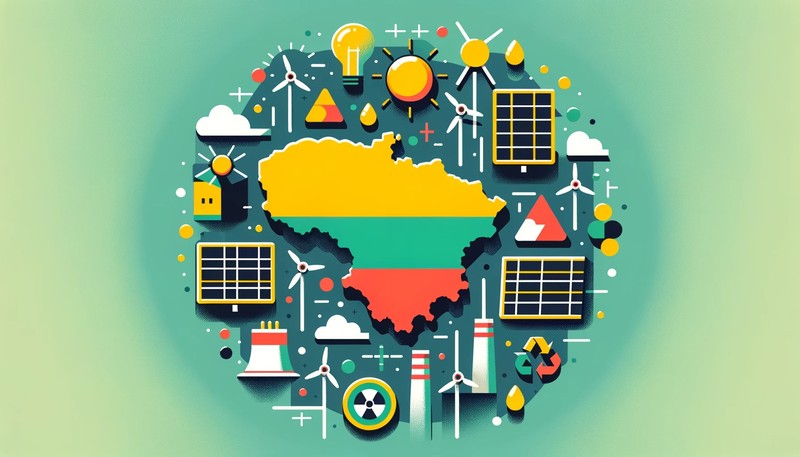Exploring the electricity market in Lithuania
Primary energy sources in Lithuania
Lithuania's energy sector is diverse, with a significant focus on renewable sources. The primary source of electricity in Lithuania is nuclear power, followed by hydroelectric power. This reliance is a part of the country's strategy to ensure energy independence and sustainability.

Additionally, Lithuania is exploring alternative renewable sources such as wind and solar energy. The country's commitment to expanding its renewable energy portfolio is evident in its policies and investments, aligning with global trends toward sustainable energy practices.
Participation in the EU electricity market
As a member of the European Union, Lithuania plays an integral role in the EU electricity market. This membership allows for cross-border electricity trade, enhancing the country's energy security and market efficiency. Lithuania's connections with neighboring countries facilitate both the import and export of electricity, balancing supply and demand.
This interconnectivity is crucial for understanding Lithuania's electricity pricing and availability. It promotes competition in the market, leading to potentially more favorable electricity prices for consumers.
Renewable energy initiatives and goals
Lithuania has set ambitious goals for renewable energy, aiming to increase its reliance on green energy sources. The government's focus on wind and solar power is part of a broader strategy to reduce greenhouse gas emissions and dependence on fossil fuels.
These renewable energy initiatives are supported by national policies and investments, reflecting the country's commitment to a sustainable and environmentally friendly energy future.
Energy sector challenges and future plans
Despite advancements in renewable energy, Lithuania faces challenges, particularly in energy infrastructure modernization and ensuring consistent supply. The country is working towards overcoming these challenges by investing in new technologies and infrastructure improvements.
Looking forward, Lithuania's energy sector is poised to continue its evolution towards greater sustainability. The country aims to strengthen its position in the European electricity market, further develop renewable energy sources, and improve energy efficiency.
Implications for consumers and businesses
The dynamics of Lithuania's electricity market directly impact both consumers and businesses. The shift towards renewable energy and market integration may lead to more stable and potentially lower long-term electricity prices. However, these transitions involve investments that might affect prices in the short term.
For businesses, adapting to new energy sources and efficiency standards presents challenges but also opportunities for innovation and sustainable growth.
